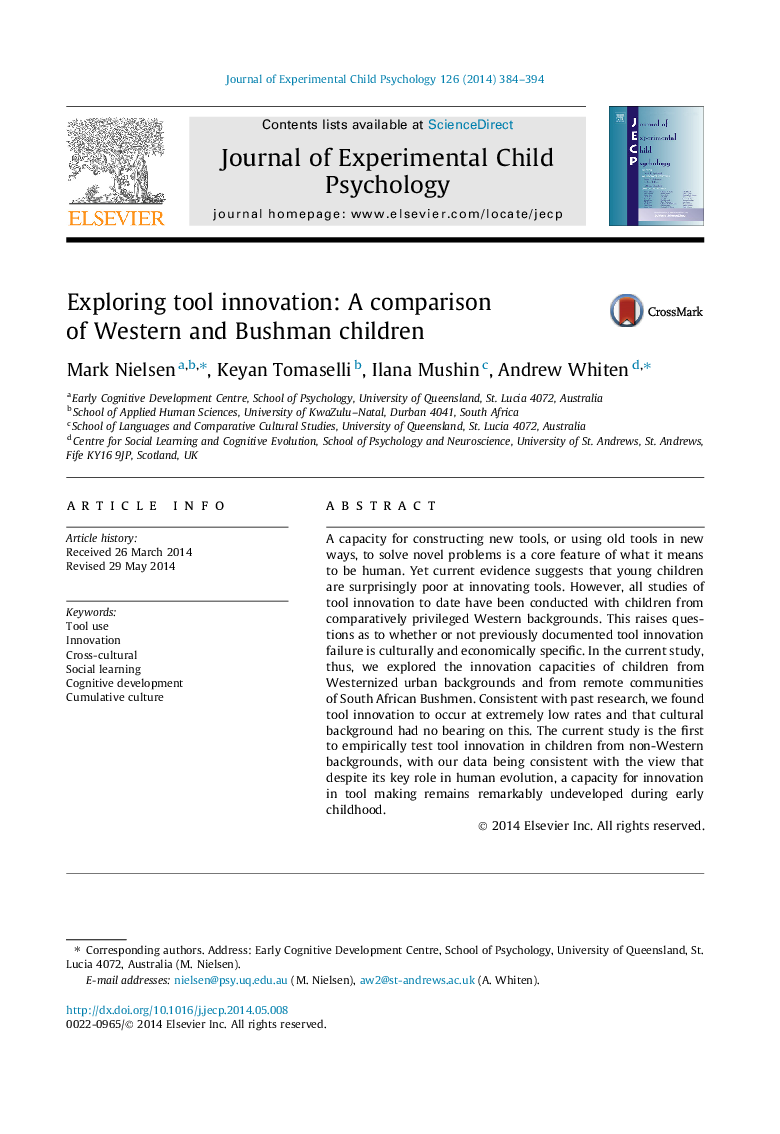| Article ID | Journal | Published Year | Pages | File Type |
|---|---|---|---|---|
| 7275419 | Journal of Experimental Child Psychology | 2014 | 11 Pages |
Abstract
A capacity for constructing new tools, or using old tools in new ways, to solve novel problems is a core feature of what it means to be human. Yet current evidence suggests that young children are surprisingly poor at innovating tools. However, all studies of tool innovation to date have been conducted with children from comparatively privileged Western backgrounds. This raises questions as to whether or not previously documented tool innovation failure is culturally and economically specific. In the current study, thus, we explored the innovation capacities of children from Westernized urban backgrounds and from remote communities of South African Bushmen. Consistent with past research, we found tool innovation to occur at extremely low rates and that cultural background had no bearing on this. The current study is the first to empirically test tool innovation in children from non-Western backgrounds, with our data being consistent with the view that despite its key role in human evolution, a capacity for innovation in tool making remains remarkably undeveloped during early childhood.
Related Topics
Social Sciences and Humanities
Psychology
Developmental and Educational Psychology
Authors
Mark Nielsen, Keyan Tomaselli, Ilana Mushin, Andrew Whiten,
